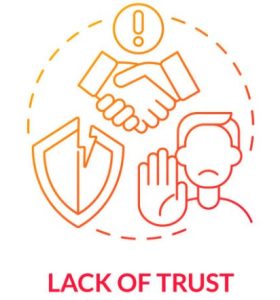4In today’s globalized world, offshore team management has become a common practice for businesses of all sizes. While outsourcing work to offshore teams can bring numerous benefits such as cost-effectiveness and access to specialized talent, managing such teams also poses several challenges that can impact the success of a project.
In this blog, we will discuss some common pitfalls that can arise when managing offshore teams and explore potential solutions to overcome them.

One of the most significant challenges of managing offshore teams is communication. Communication gaps can lead to misunderstandings, delays, and ultimately, project failure. These gaps can occur due to differences in time zones, language barriers, and cultural differences.
Solution:
Here are some pointers & Solutions to help overcome communication challenges in offshore team management:
1. Establish clear communication channels: Define the communication channels to be used by the team, such as email, instant messaging, video conferencing, or project management tools. Ensure that everyone in the team has access to these channels and knows how to use them.
2. Set communication expectations: Define the frequency and mode of communication, such as daily or weekly check-ins, and how team members should respond to messages or requests.
3. Schedule regular team meetings: Schedule regular team meetings to discuss project updates, goals, and any issues that need to be addressed. Use video conferencing tools to create a more personal connection and to ensure that all team members can participate in the meeting.
4. Use collaboration tools: Use collaboration tools such as Google Docs, Trello, or Asana to share project updates, documents, and progress reports. These tools allow team members to work together in real-time and provide feedback.
5. Be transparent: Be transparent about project progress and any issues that arise. This helps to build trust among team members and ensures that everyone is on the same page.
6. Be culturally sensitive: Cultural differences can impact communication in offshore teams. Be aware of cultural differences in communication styles and adapt your communication accordingly.
7. Encourage feedback: Encourage team members to provide feedback on communication and suggest improvements. This helps to identify any communication gaps or issues early on and ensures that communication is effective.
By following these pointers, you can improve communication in your offshore team, build trust among team members, and ensure project success.
Lack of Trust
Another challenge of offshore team management is the lack of trust between team members. Building trust is crucial in any team, and it can be particularly challenging in offshore teams due to the lack of face-to-face interaction.
Solution:
Here are some pointers to help overcome the lack of trust in offshore team management:
1. Set clear expectations: Set clear expectations for project milestones and deliverables, as well as communication protocols and response times. Ensure that all team members understand their roles and responsibilities.
2. Encourage transparency: Encourage team members to be transparent about their progress and any issues that arise. This helps to build trust among team members and ensures that everyone is on the same page.
3. Recognize contributions: Recognize the contributions of individual team members and acknowledge their achievements. This helps to build confidence and trust among team members.
4. Foster open communication: Foster open communication and encourage team members to share their ideas and opinions. This helps to create a collaborative environment and encourages team members to work together.
5. Provide feedback: Provide regular feedback to team members on their performance and encourage them to provide feedback to each other. This helps to build trust and creates a culture of continuous improvement.
6. Organize team-building activities: Organize team-building activities such as virtual happy hours or games to help team members get to know each other better. This helps to build personal connections and strengthens the team’s bond.
7. Address conflicts: Address conflicts early on and encourage team members to resolve them through open communication and collaboration. This helps to build trust and ensures that conflicts do not escalate.
By following these pointers, you can build trust among team members in your offshore team and ensure project success.

Cultural differences can impact the effectiveness of an offshore team. Differences in communication styles, work ethics, and expectations can lead to misunderstandings and conflicts.
Solution:
Here are some pointers to help overcome cultural differences in offshore team management:
1. Understand cross cultural differences: Take the time to understand the cultural differences between team members, including communication styles, work practices, and values. This can help to avoid misunderstandings and build trust among team members.
2. Create a dynamic and diverse team: Create a diverse team that includes individuals from different cultures, backgrounds, and experiences. This can help to foster a culture of inclusivity and can bring new perspectives to the project.
3. Define common goals: Define common goals and objectives that all team members can work towards. This can help to create a shared purpose and vision that transcends cultural differences.
4. Adapt communication styles: Adapt communication styles to suit the cultural preferences of team members. For example, some cultures may prefer direct communication, while others may prefer indirect communication.
5. Be respectful: Be respectful of cultural differences and avoid making assumptions or stereotyping. This can help to build trust and create a positive work environment.
6. Provide cultural training: Provide cultural training to team members to help them understand the cultural differences and how to work effectively with team members from different cultures.
7. Celebrate diversity: Celebrate the diversity of the team and encourage team members to share their cultural traditions and experiences. This can help to create a sense of belonging and strengthen the team’s bond.
By following these pointers, you can overcome cultural differences in your offshore team and create a collaborative and inclusive work environment that leads to project success.
Time Zone Differences
Managing an offshore team requires working across different time zones, which can make it challenging to coordinate work schedules and communicate effectively.
Solution:
Here are some pointers to help overcome time zone differences in offshore team management:
1. Define overlapping work hours: Define a set of overlapping work hours when all team members are available for communication and collaboration. This can help to ensure that team members can work together effectively and minimize delays.
2. Use scheduling tools: Use scheduling tools such as Doodle or Calendly to schedule meetings and calls that work for all team members. This can help to avoid scheduling conflicts and ensure that all team members can participate.
3. Prioritize communication: Prioritize communication and ensure that all team members are aware of the project’s progress and any issues that arise. Use collaboration tools such as email, instant messaging, or project management tools to keep everyone informed.
4. Delegate tasks effectively: Delegate tasks effectively, taking into account the time zone differences and the availability of team members. This can help to ensure that tasks are completed on time and that team members can work together efficiently.
5. Be flexible: Be flexible and adapt to the needs of team members in different time zones. This may mean adjusting work schedules or finding alternative ways to communicate and collaborate.
6. Record meetings: Record meetings and calls, so team members in different time zones can access them at a later time. This can help to ensure that all team members have access to important information and updates.
7. Plan well ahead: Plan well ahead and anticipate potential time zone issues. This can help to minimize delays and ensure that the project stays on track.
By following these pointers, you can overcome time zone differences in your offshore team and ensure project success. Effective communication, flexibility, and planning well ahead are key to managing time zone differences and creating a collaborative work environment.
To Conclude, Offshore team management can be challenging, but it is also a valuable tool for businesses looking to expand their reach and access specialized talent. By understanding and addressing common pitfalls such as communication gaps, lack of trust, cultural differences, and time zone challenges, businesses can build successful offshore teams that deliver high-quality work and drive business growth.



